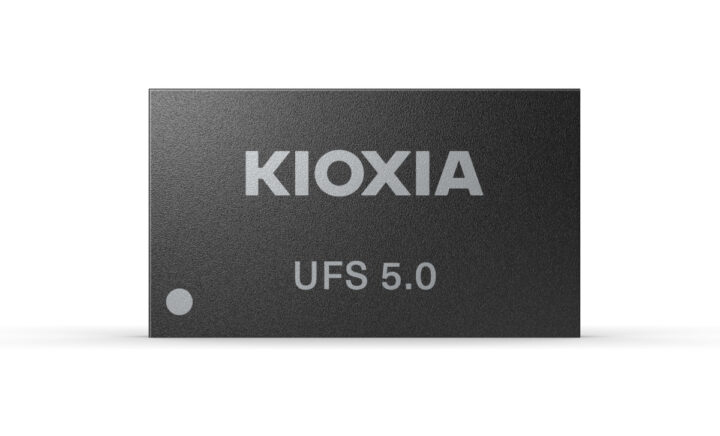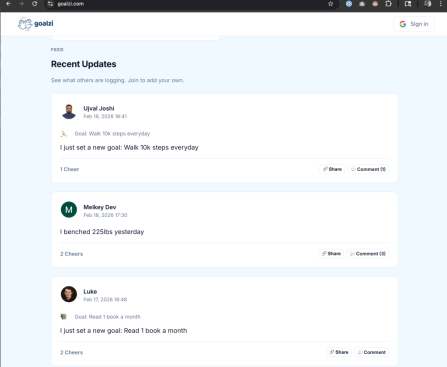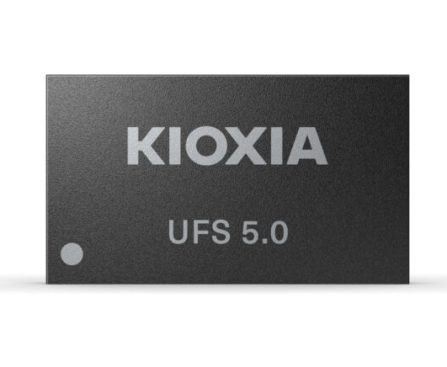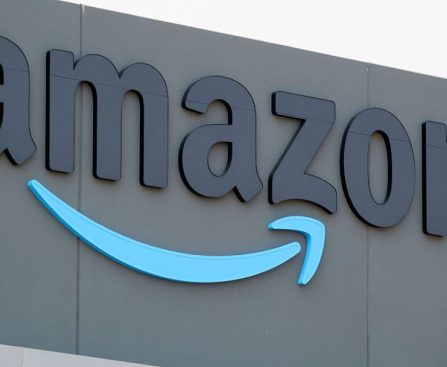Some solid advice from a couple of Frontend Masters courses made for a fast, secure, and ready to scale deployment system.
Blog Posts
Blog Posts
Kioxia Releases UFS 5.0 Flash Memory with 1TB Capacity, 10.8 GB/s Speed

Kioxia has announced that it has begun shipping evaluation samples of UFS 5.0 embedded flash memory available in capacities of 512 GB and 1 TB. UFS 5.0 is a new standard for embedded flash storage currently being developed by JEDEC for next-generation mobile devices. The new standard utilizes MIPI M-PHY version 6.0 for the physical layer and UniPro version 3.0 for the protocol. The new High-Speed Gear 6 (HS-GEAR6) mode available in M-PHY version 6.0 can handle up to 46.6 Gbps per lane, meaning that with 2 lanes, it can achieve around 10.8 GB/s read/write performance, outperforming most NVMe SSDs, except for PCIe Gen5 SSDs. As a reminder, the previous UFS 4.0 standard promised up to 4,200 MB/s, so the upcoming UFS 5.0 standard more than doubles the theoretical speed. Besides the higher throughput, UFS 5.0 adds the following features, according to JEDEC: Integrated link equalization for more reliable signal […]
The post Kioxia samples UFS 5.0 embedded flash memory with up to 1TB capacity, 10.8 GB/s data rate appeared first on CNX Software – Embedded Systems News.
Five Reasons Android Provides Greater Power Compared to iOS
Google’s Android compared to Apple’s iOS. There is considerable overlap between the two, as both Google and Apple frequently imitate software features that were initially introduced by their competitor. Individuals who are not particularly devoted to either ecosystem would not make a poor choice selecting the device that satisfies their immediate requirements, irrespective of the operating system. However, more knowledgeable users might argue otherwise, suggesting that the decision lies between variety, customization, and freedom, versus premium products centered around privacy and security that do not provide the same freedoms. In the following sections, we will clarify why Android is superior to iOS.
We are no longer in the early days of the Android versus iPhone competition. We are faced with two established operating systems that are each highly competent. Android 16 and iOS 26 are the most recent software versions available for Android and iPhone, transforming the handheld device in your pocket into a robust personal computer. The smartphone may now be the primary device you reach for when performing tasks that would have previously necessitated a laptop or desktop. That portable computer becomes even more adaptable if it operates on Android, allowing for several actions that are not possible on an iPhone.
An Android smartphone will perform multitasking more effectively than iOS and will provide you with a more comprehensive file management system. Android devices can accommodate almost any app through sideloading, while iPhones are largely confined to the App Store. All of this culminates in a more PC-like experience on Android compared to what you would find on an iPhone. Lastly, we must acknowledge the rise of AI, where Google holds a significant advantage over Apple.
An Android device (and interface) for every preference, style, and budget
$17 Device Boosts Efficiency and Earns Rave Reviews from Amazon Customers
We have long understood that procrastination is not primarily linked to laziness or time issues, but rather to human behavior and psychological factors. It is also not significantly related to inadequate time management. Productivity often declines without the proper motivation or an effective work schedule, and that does not imply working tirelessly all day, every day. A viable approach to address this and potentially create more concentrated work periods is to employ a strategy known as the Pomodoro method. This involves working for a designated time frame with full concentration and then taking a brief break afterward. Typically, this means working in 25-minute blocks followed by five-minute pauses. These sessions are monitored using a specialized tool called a Pomodoro timer.
There exists a variety of Pomodoro timers with distinct designs and functionalities, making them incredibly valuable tools for enhancing productivity while working remotely. One particular timer that has gained popularity on Amazon is receiving high praise from reviewers. The OORAII rotating Pomodoro timer, priced at only $17, boasts over 870 reviews on Amazon and holds a 4.7 out of 5-star rating. An impressive 85% of these reviews are 5 stars, with an additional 9% rating it at 4 stars, resulting in 94% of all reviews being rated 4 stars or higher. It appears that users are quite fond of this product.
Many comments commend it as “elegant, functional,” and “almost perfectly designed.” Some have referred to it as an “essential task timer,” noting that it has been exactly what they needed to maintain focus and energy throughout their day.
What makes the Pomodoro technique effective?
Developed in the 1980s by Francesco Cirillo, a university student in France aiming to enhance his study practices, the Pomodoro technique specifically tackles the issue of natural burnout. He initially utilized a basic manual timer, akin to an egg timer or a digital kitchen timer. Cirillo discovered that short breaks between periods of intense focus provide essential time for the body to relax, enabling sustained productivity, provided the method is adhered to and genuine breaks are taken.
The Pomodoro technique is recognized for its numerous advantages during high-concentration work or study periods, such as enhanced focus, reduced distractions, diminished burnout feelings, and overall increased motivation. It also alleviates stress and anxiety linked to work, particularly the pressure of impending deadlines.
The $17 OORAII Pomodoro timer from Amazon enables you to monitor your individual 25-minute focused sessions, alternated with five-minute breaks. It includes preset intervals for easier selection, along with additional 10-minute and 50-minute options. Once set, the timer emits a sound alert with three volume options — silent, low, and high — to signal the end of the interval. A gravity sensor detects the selected interval, and flipping it activates the system. It also boasts an extended battery life with USB-C charging for user convenience. While you could opt for more conventional Amazon gadgets, like an Echo speaker or an Alexa-enabled device, the OORAII Pomodoro timer comes preconfigured for this technique, eliminating the need to adjust a clock or timer, making it simple to use. Plus, it costs only $17, which is less than what you’d typically spend on a fast food meal these days.
“Unexpected Removal of Favored Electronics from Costco Aisles”
confirming fans’ most dreaded concerns regarding the Steam Machine and the increasing prices of electronic parts, the past several months have been challenging for gamers and the consumer electronics sector as a whole. Now, it seems that the gaming community is facing yet another setback, with Costco ceasing to stock Xbox consoles or games in both the U.S. and U.K.
Although the initial discovery was made by users across various online platforms, Costco appears to have stopped offering Xbox gaming systems. The rationale behind this is somewhat unclear, but numerous factors could influence this decision, such as climbing costs and declining sales of the console. Given that Business Insider highlights Costco as the third largest retailer globally, trailing only Walmart and Amazon, this decision could represent a substantial loss for gamers.
Other gaming consoles and titles remain available at Costco, and you can find enough products through the retailer to construct your own retro arcade if you wish, but do not anticipate finding anything related to Xbox in the near future. This may also serve as further indication that users might prefer the PlayStation 5 over an Xbox in 2026. Nevertheless, Microsoft has also confirmed that another Xbox console will be released following the X and S series.
Costco no longer stocks Microsoft Xbox items
More Shohei Ohtani Content Arriving on TikTok
Major League Baseball wants more of a footprint on TikTok. Just in time for spring training, the two companies announced Tuesday they were partnering to expand baseball content on TikTok, including creating an MLB hub in the app and, of course, bringing in more influencers. Baseball is coming back after a season that was especially […]
This Limited Edition Death Stranding-Inspired Tablet Is the Coolest Device I’ve Ever Used
The Asus ROG Flow Z13 was already a unique beast. It’s a chunky gaming tablet with impressive AMD Strix Halo integrated graphics. I was really into it when I reviewed it around this time last year. But just look at it now, clad in the stylings of Hideo Kojima’s game studio and his longtime collaborator, […]
Chainsmokers-Endorsed AI Music Producer Joins Google
ProducerAI, an AI-powered music-making platform, is joining Google. As part of the deal, Google will fold ProducerAI under the Labs umbrella and power the tool with a preview version of its new Lyria 3 music-making AI model. ProducerAI is a music-making platform that allows users to work with an AI agent to generate sounds, workshop […]
Samsung is Under Scrutiny at Unpacked
Another Unpacked is nearly upon us. On February 25th, Samsung is expected to announce the Galaxy S26 series of flagship phones – potentially including the S26, S26 Plus, and S26 Ultra – with another round of AI-based features. That will come as a surprise to nobody. But as more AI creeps in on Samsung’s AI […]
Nimble Secures $47M to Enable AI Agents’ Access to Real-Time Web Data
Nimble uses AI agents to search the web, verify and validate the results, and then clean and structure the information into neat tables that can then be queried like a database.










